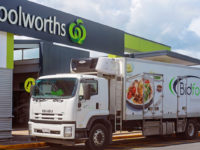Bill Heague’s extensive career with Mars has taken him all over Europe, most recently to Ireland where he managed Mars’ Irish multisales business. But when an opportunity opened up at home last year, Heague answered the call. As Mars Food Australia general manager he has been faced with numerous challenges in his first year, from the impact of bushfires to the fallout from the Covid-19 pandemic. “I landed in mid November, just as the bushfires were flaring up, which was a stark reminder

Just for$39.95per year

















